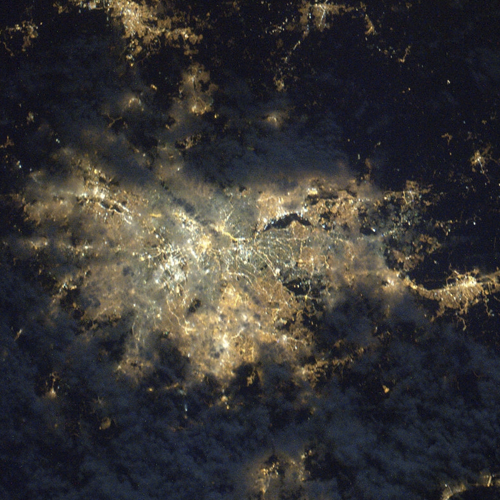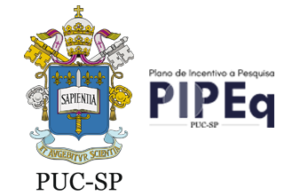TERRITORIALITIES OUTLINED BY EVERYDAY POPULATION FLOWS IN THE CITY OF SÃO PAULO

The urban studies have been a constant and significant mark of PUC-SP’s Graduate Studies Programs, with emphasis on the Social Sciences, History, Social Psychology, Communication and Semiotics, Literature and Literary Criticism, and Social Work programs, which are related to the following research groups belonging to the CNPq research groups directory: Observatory of Metropolises-SP, Center for Urban Studies and Research (NEPUR), Image, Metropolises and Juvenile Cultures Research Group, all from the Social Sciences Program; Portugal and Brazil in the contemporary world Research Group: identity and memory, tied to the History Program; Affectivity and Dialectics of the exclusion/inclusion Research Group from the Center for Psychosocial Studies of the dialectic exclusion/inclusion (NEXIN), of Social Psychology; Center for Social Semiotics Research (CPS) and the Interdisciplinary Center for Research in Communication and Cyberculture (CENCIB), both from the Communication and Semiotics Program, the Research Group: Poetic Studies, Literature and Literary Criticism Program and the The Center for Studies and Research on Social Movements (NEMOS) and the Cities and Territories Center for Studies and Research, which belongs to the Social Work Program. This project establishes a more constructive and preventive form of intervention that seeks to build new scales of scope for public policies, aiming to guarantee access to the city and to citizenship, in the perspective of access to social protection and social rights, as well as visual, musical and literary manifestations giving visibility to another possible social order. The project aims to study the interurban dynamics of the city of São Paulo, considering the social and spatial transformations, population flows, cultural manifestations and the main hurdles to the implementation of public policies aimed at the urban well-being of the population that lives in the center of the biggest metropolitan region of Brazil. The project also intends to point out the importance of metropolitan regions to think about the present and the future of the Brazilian urbanization process and to identify the mechanisms that generate hindrances and advances in the conditions of urban welfare and social vulnerability. The Platform is based on a multidisciplinary network that shares information, knowledge and methodologies, founded on the respective teaching-research experience of teacher-researchers, graduate scholars, master’s and doctoral students and postdoctoral students linked to different Graduate programs as well as that of social sector members responsible for the territorial management of social policies. In this way, it is vitally important to consolidate technological bases that support the operation of a network aimed at the sharing of information and knowledge, as well as professional practices and approaches to the territories. The right to the city: urban welfare and inequalities The social, cultural, economic and political organization of the world’s great metropolises is of paramount importance to understand and reflect on the challenges to be faced by the big cities, which are centers of economic, social and political power at various scales. Territories, displacements and immigrations in the city of São Paulo This thematic area aimed to study the territoriality of immigrants in the city of São Paulo, unfolding into two subprojects: 2.1 Territories and displacements in the city of São Paulo 2.2 Territories, alterity and access to the public policies for Bolivian, African and Haitian immigrants Cultural manifestations with new aesthetics, new social propositions and the reinvention of the public space 3.1 Cultural manifestations and their new flows retraced by the new communicational processes of a new aesthetic This thematic area of the present project seeks to analyze how the diverse cultural manifestations and their flows distributed in the topology of São Paulo configure identity specificities, both of the places and of its people, and thus construct ways of sociability that dynamize the social bonds as they produce new forms of crossing the territoriality that corroborate the emergence of different meanings of belonging in the city of São Paulo. 3.2 The “artistic occupation” movement in the city of São Paulo 3.3 Young people, culture and politics: urbanities, flows, appropriations, uses Population flows regarding access to Social Assistance and Housing policies This thematic area is based on the studies that have been carried out by the Coordinating Body for Studies and Development of Special Projects – CEDEPE/PUC-SP, as well as service provisions implemented in the scope of the management of social policies (especially in the fields of social assistance and housing). Urban space, real-time communication and mobility crisis: social-historical significance of the rush-hour as a metropolitan symptom of the transpolitical condition Thematic area dedicated to the relations between the urban space, real-time communication practices and the political dimension of social life, especially during rush-hour periods in the major contemporary cities.Which São Paulo emerges from the constellations?
Research Report | 2016 – 2017 Stage.
About the Project


Thematic areas
Meet the Research Groups
Access the Results of the Studies conducted

 You can navigate this Platform through three different ways, which are:
You can navigate this Platform through three different ways, which are:









